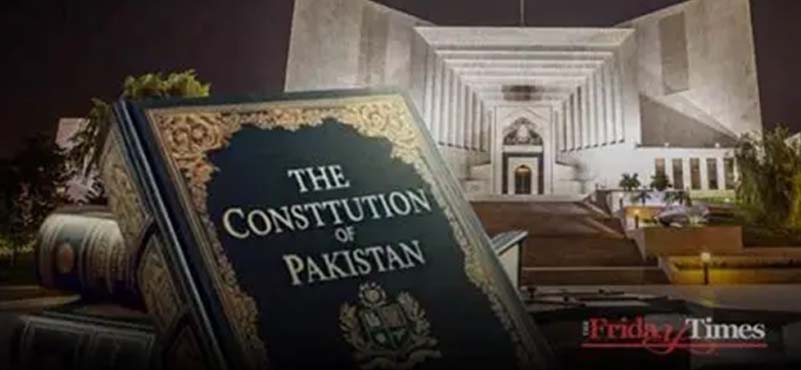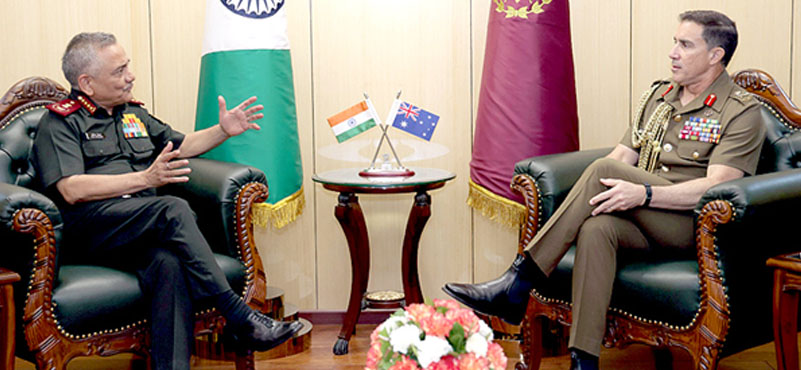It is often said that while countries have an Army, in Pakistan it is the other way around. The Pakistan Army has a country. With Field Marshal Asim Munir being the present de-facto ruler, the amendment appears to be a constitutional coronation.
Introduction
On 08 November 2025, the Pakistan government tabled the draft 27th Constitutional Amendment Bill in the Senate proposing extensive changes to Pakistan’s military command structure and judicial framework.
The legislative proposal, among other changes, rewrites Article 243 of the Constitution, creating the post of Chief of Defence Forces and abolishes the office of the Chairman of the Joint Chiefs of Staff Committee (CJCSC). It also vests broader, constitutionally protected powers and privileges on the country’s top military leadership.
The amendment, which will be voted upon on 14 November is expected to have far-reaching implications. With 233 seats in the 336-member National Assembly, the ruling coalition holds enough votes to clear the lower house. In the 96-member Senate, it falls short of the two-thirds majority required by three seats, against the 64 needed but it is confident on the support of smaller parties or opposition defections to push this bill through.
Article 243
Article 243 governs the relationship between the Prime Minister (as head of the federal government) and the President (as the head of state) in relation to the control and command of the Armed Forces.
Article 243 has been amended five times in Pakistan’s history. The original 1973 Constitution stated that “the Federal Government shall have control and command of the Armed Forces.” General Zia-ul-Haq later amended it to read that “the Supreme Command of the Armed Forces shall vest in the President,” effectively shifting authority from the civilian government to the presidency and, by extension, the military.
In 1997, then-Prime Minister Nawaz Sharif rolled back that change restoring control of the armed forces to the federal government and parliament.
General Pervez Musharraf reversed it once again in 2002 through the Legal Framework Order (LFO), restoring Presidential dominance. The shift once again took place under the 18th Amendment in 2010, which symbolically retained the President’s role as Commander-in-Chief but vested actual authority in the federal government, an arrangement that is presently in place.
Key Changes Proposed to Article 243
The key changes involve recognizing the Army Chief as the Chief of Defence Forces. The office of the Chairman Joint Chief of Staff Committee presently held by General Shamshad Mirza who is to retire on 27th November is to be abolished.
According to the draft tabled in the Senate, the amendment would make the Chief of the Army Staff, the constitutionally recognised Chief of the Defence Forces, effectively merging the Army Chief’s current authority with a new overarching title that places him at the top of Pakistan’s Armed Forces.
It also proposes establishing a Commander of the National Strategic Command and defines extensive entitlements for officers elevated to the five-star ranks of Field Marshal, Marshal of the Air Force or Admiral of the Fleet.
Under the new amendment, the President, acting on the Prime Minister’s advice, would appoint the Army, Naval and Air Chiefs, with the Army Chief serving “concurrently as Chief of the Defence Forces.”
The draft further provides that the Commander of the National Strategic Command, overseeing the country’s nuclear and strategic assets, would be appointed by the Prime Minister on the recommendation of the Army Chief, and must come from within the Army.
A separate set of clauses grants life-long constitutional protection to officers promoted to five-star rank. Such officers would “retain the rank, privileges and remain in uniform for life,” removable only through the impeachment-like procedure under Article 47. Immunities similar to those enjoyed by the President under Article 248 would apply in this case.
Upon completion of the term of his command, under the law, the federal government shall determine the responsibilities and duties of Field Marshal, Marshal of the Air Force or Admiral of the Fleet in the interest of the state.
While presenting the draft in the Senate, the Minister for Law and Justice Azam Nazeer Tarar, said that the Chief of Army Staff, Asim Munir had been awarded the title of Field Marshal, which “is not a rank or an appointment as such … whereas Army Chief is an appointment with a five-year tenure.”
Tarar noted that it was clarified that the “impeachment or reversal” of the title would not be at the premier’s authority but the Parliament’s, adding that the office of CJCSC would be abolished from 27 November 2025.
“The present CJCSC is also our hero; it [the position] will be abolished after his appointment ends. Parliament cannot even think of depriving him of the role during his tenure,” he said.
However, the Minister continued, there would be no new appointment because the COAS had been given the role of the Chief of Defence Forces. He further said that the bill proposed that the Prime Minister, on the recommendation of the COAS, would appoint the Commander of the National Strategic Command.
A Brewing Storm
Government officials and some lawmakers describe the measure meant to modernise command arrangements and regularise extraordinary promotions made in recent months. But the proposal has triggered a debate in Islamabad, with opposition parties and civil-rights groups warning that it could tilt the balance of power further toward the military at the expense of civilian institutions.
The office of the Chairman of the Joint Chiefs of Staff, a potential challenger to the Army Chief would be closed, and under him a new office of the Vice Chief of Army Staff would be established.
If approved, the office of the Chairman, Joint Chiefs of Staff Committee (CJCSC), long regarded as the principal inter-service coordinating body, would be abolished on 27 Nov the date on which incumbent CJCSC General Sahir Shamshad Mirza is set to retire. General Mirza would hence become the last Chairman of Joint Services in the country’s history.
Revamp of the Judiciary
Pakistan’s freshly tabled 27th Amendment also proposes key changes to the judicial structure. It promises to “streamline” governance — through new constitutional courts and revived executive magistrates.
At the heart of the amendment is the creation of a new apex court: the Federal Constitutional Court (FCC). Inserted into the Constitution as Chapter 1A, the FCC would have its own Chief Justice — serving a fixed three-year term — and Judges, who may be appointed from the Supreme Court (SC), senior High Court (HC) Judges with at least seven years of experience, or very senior advocates with over two decades in practice.
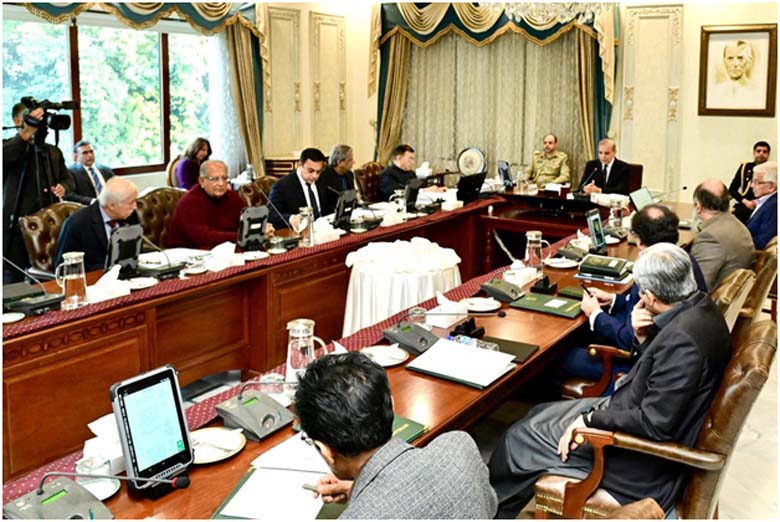
The amendment further stipulates that the President may transfer a High Court Judge from one High Court to another on the recommendation of the Judicial Commission of Pakistan. A Judge of a High Court who does not accept a transfer under this Article shall be deemed to have retired from his office.
The FCC would assume some of the SC’s most significant powers. Under the new Article 189, the SC would be downgraded to the apex court for civil and criminal appeals only, while FCC decisions would be binding on all courts, including the SC itself. The FCC would also hold exclusive jurisdiction over disputes between the Federation and provinces, or among provinces, and could, on its own motion, take up any case involving a “substantial question of law as to the interpretation of the Constitution.”
Moreover, the FCC would take over the Supreme Court’s authority on cases concerning the enforcement of fundamental rights, appeals from High Courts on constitutional matters, writ petitions under Article 199 (except family and rent cases), and even the President’s power to seek advisory opinions from the Apex Court.
In other words, a new constitutional court to handle constitutional disputes as well as fundamental rights cases. Linked to this is the power for transferring judges, which would move from the Chief Justice to the executive, which is the Prime Minister’s Office.
Implications
Presently, the 27th Amendment Bill sits at the centre of an increasingly charged debate over the limits of civilian oversight and the military’s constitutional role. If enacted, it would mark the most consequential revision of Pakistan’s defence command structure since the constitutional battles of the 1980s and could redefine, in law, the delicate balance that has long shaped the country’s civil-military relations. The changes therefore will expand the institutional autonomy of the military and further insulate it from civilian oversight.
Former Pakistan Defence Secretary Lieutenant General Asif Yasin Malik (Retd) has stated that “the proposed system invites institutional imbalance and potential disaster.” “This amendment appears tailored to benefit a specific individual rather than to strengthen the defence structure.”
As regards the judiciary it is clear, that democratic institutions will remain paralysed within Pakistan. The judiciary which has seen its independence curbed since the 26th Amendment will now be further eroded.
The opposition alliance Tehreek Tahafuz-i-Ayeen-i-Pakistan (TTAP), which includes the PTI, has urged the people to take a stand against the “extremely dark and dangerous” change in the Constitution. A stand if taken, may mean more civil unrest, that could be the beginning of a civil war. It is a powder keg that may ignite.
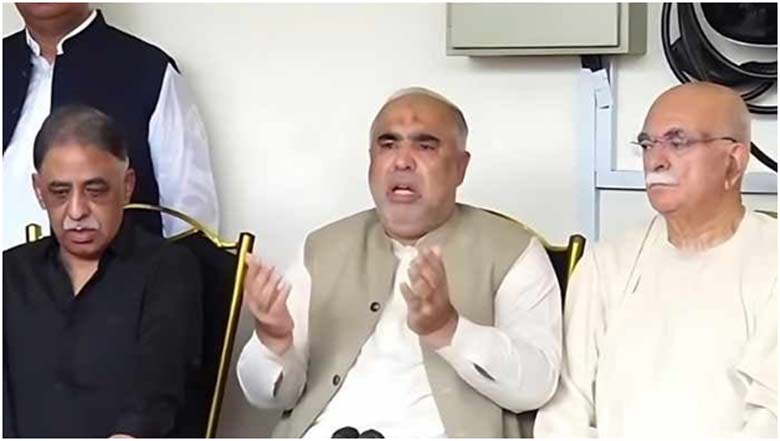
The amendment once enacted would reduce financial powers of provinces, strip the judiciary of its independence, and enhance the role and power of the Army. Its impact would be far-reaching and appears to be taken by the government to offset the challenges to its authority, especially from Imran Khan’s Pakistan Tehreek-e-Insaaf (PTI).
The fact is that in Pakistan, constitutional amendments have historically been used to reshape the balance of power between the military, civilian government and judiciary and this amendment is no different as it formalises the role and rule of the Army and the demise of democratic institutions.
The Army Chief will become the Chief of Defence Forces or CDF. More than responsibility, this would mean unlimited authority. The CDF would effectively control the entire Defence Forces (Army, Navy, Air Force), as also the Para Military Forces. In addition, the Army Chief would also be the de-facto Commander of the National Strategic Command, as it is he, who shall appoint the incumbent. Such an arrangement places unprecedented power in the hands of one person. That person, who is likely to be Asim Munir, has already openly expressed his hatred for India, and has shown fundamentalist tendencies, is the last person, who should be in control of the nuclear arsenal.
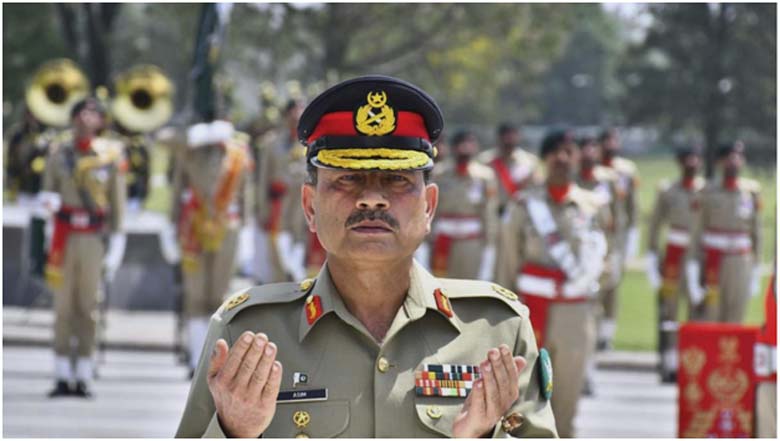
For India, this amendment implies that dialogue with Pakistan’s elected leadership will become even more meaningless, as all major decisions will lie directly with the military. This would axiomatically further distance the two countries. India should also be prepared for enhanced and renewed nuclear brinkmanship, a trailer of which Asim Munir has already demonstrated. The implication of which means constant readiness for a nuclear outbreak.
It is often said that while countries have an Army, in Pakistan it is the other way around. The Pakistan Army has a country. With Field Marshal Asim Munir being the present de-facto ruler, the amendment appears to be a constitutional coronation.
ABOUT THE AUTHOR
 Maj Gen VK Singh, VSM was commissioned into The Scinde Horse in Dec 1983. The officer has commanded an Independent Recce Sqn in the desert sector, and has the distinction of being the first Armoured Corps Officer to command an Assam Rifles Battalion in Counter Insurgency Operations in Manipur and Nagaland, as well as the first General Cadre Officer to command a Strategic Forces Brigade. He then commanded 12 Infantry Division (RAPID) in Western Sector. The General is a fourth generation army officer.
Maj Gen VK Singh, VSM was commissioned into The Scinde Horse in Dec 1983. The officer has commanded an Independent Recce Sqn in the desert sector, and has the distinction of being the first Armoured Corps Officer to command an Assam Rifles Battalion in Counter Insurgency Operations in Manipur and Nagaland, as well as the first General Cadre Officer to command a Strategic Forces Brigade. He then commanded 12 Infantry Division (RAPID) in Western Sector. The General is a fourth generation army officer.
 Major General Jagatbir Singh was commissioned into 18 Cavalry in December 1981. During his 38 years of service in the Army he has held various command, staff and instructional appointments and served in varied terrains in the country. He has served in a United Nations Peace Keeping Mission as a Military Observer in Iraq and Kuwait. He has been an instructor to Indian Military Academy and the Defence Services Staff College, Wellington. He is a prolific writer in defence & national security and adept at public speaking.
Major General Jagatbir Singh was commissioned into 18 Cavalry in December 1981. During his 38 years of service in the Army he has held various command, staff and instructional appointments and served in varied terrains in the country. He has served in a United Nations Peace Keeping Mission as a Military Observer in Iraq and Kuwait. He has been an instructor to Indian Military Academy and the Defence Services Staff College, Wellington. He is a prolific writer in defence & national security and adept at public speaking.

